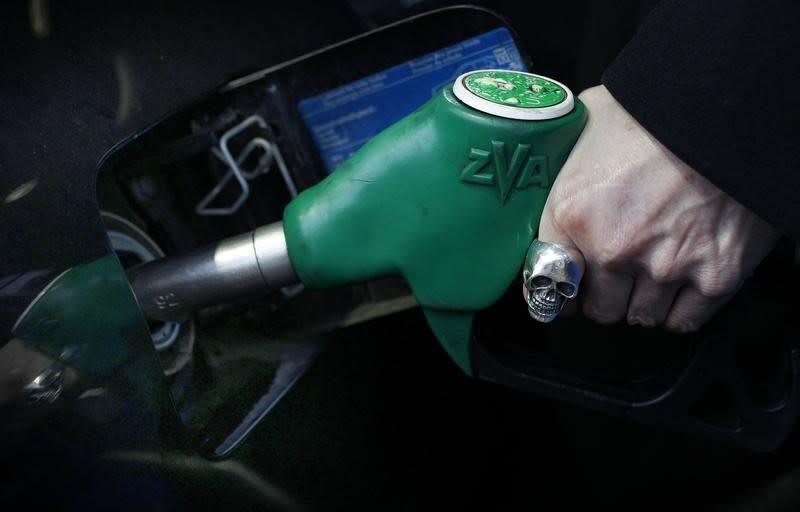Oil bounces off three-week lows as Greek debt default looms

By Barani Krishnan
NEW YORK (Reuters) - Oil prices bounced from three-week lows on Tuesday, with U.S. refined fuel trading leading the rally on bets for strong summer demand, even as Greece's move toward a debt default threatened to jolt global markets.
The run-up in oil, coming ahead of Wednesday's U.S. oil inventory data, also jarred with the stronger dollar, which normally tends to weigh on commodities. [EIA/S] [FRX/]
The extension of a deadline for a nuclear deal that will let Iran export more crude into an oversupplied market was another bearish factor the market overlooked.
Brent crude settled up $1.58, or 2.6 percent, at $63.59 a barrel.
It fell 3 percent for June, rose 15 percent for its best quarter since September 2012, and finished up 11 percent for the half year.
U.S. crude rose $1.14, or almost 2 percent, to $59.47. It slipped 1 percent on the month; jumped 25 percent in the second quarter for its best quarterly gain since December 2011, and closed up 12 percent on the year.
Still, some analysts urged caution, saying the selloff that slashed crude prices by 60 percent between June and January may return if crude stockpiles start piling again from September, after the end of summer driving season.
"This isn't exactly a dead-cat bounce, but the fundamental picture is still bearish," said Chris Jarvis, analyst at Caprock Risk Management in Frederick, Maryland. "I wouldn't be surprised to see losses in the next quarter."
Expiring front-month contracts in U.S. gasoline and ultra-low sulphur diesel rallied nearly 3 percent, helping lift crude futures, as traders and investors squared positions ahead of the month- and quarter-end.
Donald Morton, who runs an energy-trading desk in Haverhill, Massachusetts, for investment bank Herbert J. Sims & Co, said the market benefited from the crack spread, the difference between the price of crude and the petroleum products extracted from it.
The gasoline crack widened sharply for the first time in three days, while that for ULSD hit a high set on June 19.
Greek government sources have said the country will default on a crucial repayment due to the International Monetary Fund later on Tuesday, plunging it deeper into financial crisis. The dollar rallied against the euro in anticipation of the default.
(Additional reporting by Christopher Johnson in London and Aaron Sheldrick in Tokyo; Editing by Lisa Von Ahn and Richard Chang)

 Yahoo News
Yahoo News 
